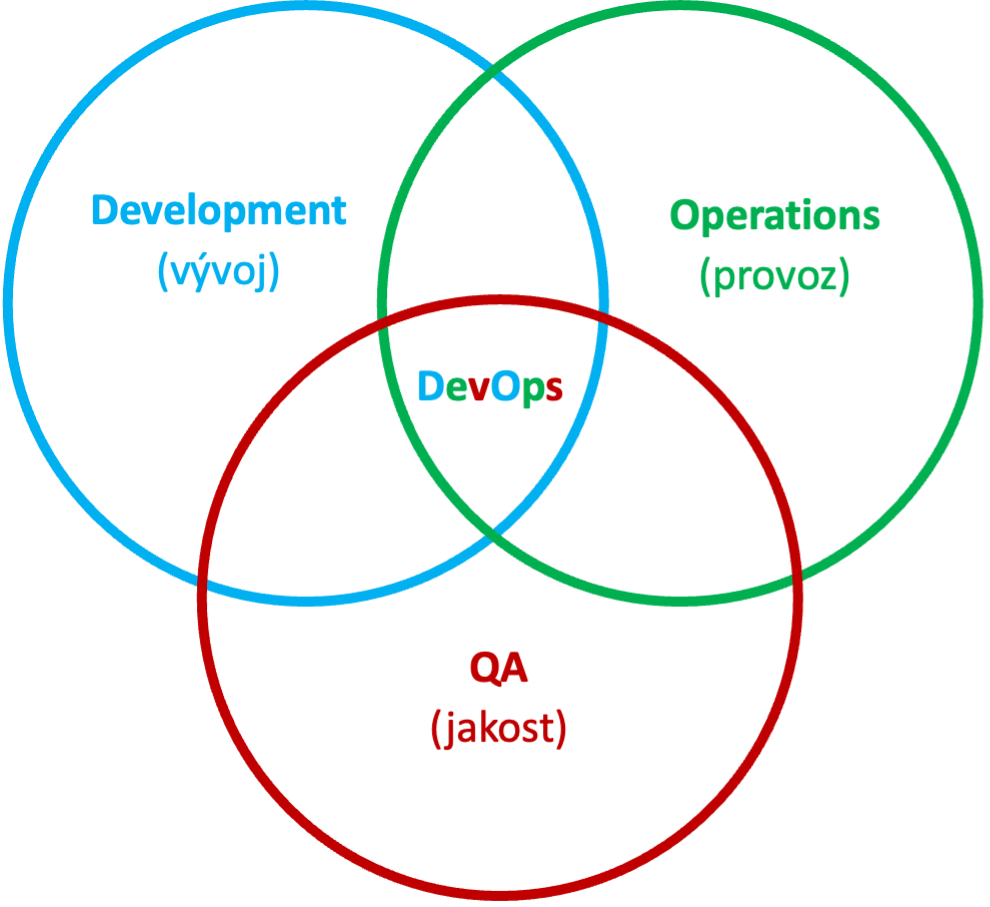
Out with the old, in with the new - this is how one of the ideas of digital transformation of enterprises could be described in a simplified way. It is not so much about progress for its own sake and innovation for innovation's sake, but, for example, about using agile development and techniques to make businesses more efficient and competitive. Among such techniques we include the so-called DevOps. Learn what it is and how it can move your business forward.
To better understand what DevOps is, let's start with a little detour. Older computer processors processed data serially ("in sequence") - one instruction at a time. Extremely fast, but not very efficient in terms of complex tasks. Over time, more complex instruction sets began to appear in processors and the number of so-called cores began to grow - for simplicity, you can think of them as multiple interconnected processors crammed side by side on a single chip. Such an architecture can not only process data in parallel ("side by side"), but also exchange partial outputs ("intermediate calculations") between cores, thus achieving higher speed and efficiency.
Tip: Read more about the evolution of processors in the article on Moore's Law.
A similar approach involves DevOps, which "parallelizes" software development and IT operations, emphasizing collaboration and communication between software development and other business teams.
Let's move from analogies to a clearer definition of DevOps. The term itself is a compilation of the English terms "software development" and "IT operations". DevOps would therefore theoretically be translated as VýPrz (development and operations), which for obvious reasons has not really caught on - so we use the original term DevOps.
It is a combination of practices, tools, people, processes and technologies that enables the integration and implies the coordination of previously separate corporate roles - from the aforementioned developers and "operations" to QA ("quality") and IT security ("security"). In the DevOps approach (or model, if you prefer), the above roles and teams work together throughout the entire lifecycle of the software - from development and testing through deployment to operations and security (strictly speaking, including management or marketing, in short, anyone who is actively involved in the development of the product in any way). This continuous collaboration (often represented in various infographics by a lying figure eight, stylized by the symbol ∞) can be most easily visualized as the intersection of sets of processes of individual teams - basically as follows:

The purpose and goal is to maximize the predictability, efficiency, safety and maintainability of operational processes. Or better still: to respond more quickly and efficiently to customer needs and provide better and more reliable products. And perhaps best of all: to compete more effectively in the marketplace.
We've already explained what DevOps is, let's take a closer look at the benefits you'll gain from implementing it.
The overall philosophy of the approach helps bridge the "gaps" between different DevOps teams and, if it "sits", leads to better internal transparency, communication and collaboration. Different teams (development, operations, QA, etc.) need to plan their work together and share their problems, priorities and DevOps processes with each other. Everyone is working towards a common goal, sharing responsibilities and ownership values. Developers begin to see responsibility not only for innovation and quality in the development phase, but also for performance and stability. IT operations, on the other hand, continuously implements good governance, security and compliance principles in planning and development. All this synergistically reduces inefficiencies and saves time.
One of the biggest advantages of the DevOps approach is the acceleration of software development. According to a survey by software company FortSeven, DevOps processes enable speedups of up to 60%. Connected teams are more flexible, giving them room to reduce time-to-market and release cycles. Shorter release cycles mean:
We have already outlined this benefit in the previous paragraphs. According to a study presented by Distillery Tech, over 70% of companies reported an improved customer experience since implementing a DevOps approach. This is undoubtedly one of the biggest business benefits that this approach can provide.
DevOps teams are growth-oriented and can adapt quickly through feedback. They incorporate the insights they learn into their DevOps processes, continuously improving and accelerating the implementation of innovation. Innovation is absolutely critical - companies that dedicate time and resources to creating new products and testing different ways to achieve better results understand this. A DevOps approach will give you much more room for just the innovation that will help you grow and expand.
Tip: You might be interested in a blue ocean strategy - how to use innovation to create a new market and escape the competition.
Cloud computing represents a fundamental paradigm shift in the way DevOps teams build, deploy and run applications.
DevOps teams gain the flexibility they need by being able to quickly set up and configure cloud environments. The high financial and time costs of acquiring and running on-premise IT infrastructure are eliminated - DevOps teams can set up the cloud environments they need in moments, and simply deactivate them when they no longer need them.
In the cloud, the overhead associated with managing IT infrastructure shifts to the cloud provider, allowing DevOps teams to focus fully on their applications. A serverless approach - a serverless architecture - offers the ability to run applications without the need to configure and maintain servers.
More and more applications are leveraging container technology. Kubernetes has become the proven - and nowadays essentially standard - solution for managing and orchestrating large numbers of containers. With Kubernetes, DevOps teams can easily create hundreds or thousands of application containers pooled into container networks.
Microsoft Azure provides a comprehensive set of tools for all phases of software development. The most popular services and tools include:
Two-crust bread is everywhere, and the DevOps approach is no exception. With all the benefits it offers, you should also consider some drawbacks.
The DevOps approach has many advantages, but also some limitations, especially in the actual implementation. If you don't apply it quite consistently from a technical, process and personnel perspective, it can even be counterproductive.
Unless your company's primary focus is on software development, you'd better consider implementing DevOps really carefully. And if you're not involved in software development at all, leave it to us - we develop customized software and can transform even the least specific specification into a real product. We always complete every IT project and guarantee that any fixes will always be resolved for free. Take a look at the case studies and get in touch, we'd be happy to help you with your software development too.




Copyright © 2026 - Algotech a.s., all rights reserved
| Personal data processing |
Terms and conditions